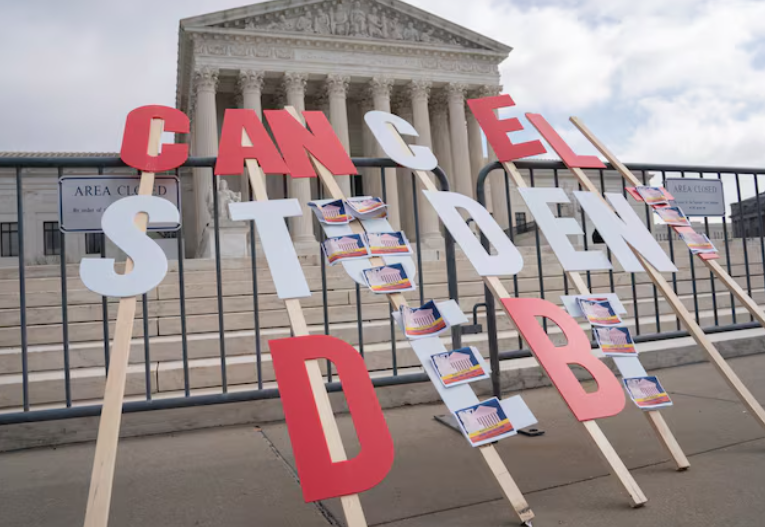Two federal judges in Kansas and Missouri, responding to requests from several Republican-led states, blocked President Joe Biden’s administration on Monday from further implementing a new student debt relief plan that lowers payments.
U.S. District Judge Daniel Crabtree in Wichita, Kansas, blocked the U.S. Department of Education from implementing parts of a student loan repayment plan that cuts borrowers’ monthly payments and provides a faster path to debt forgiveness. Shortly after, U.S. District Judge John Ross in St. Louis, Missouri, issued a preliminary injunction, preventing the department from granting further loan forgiveness under the administration’s Saving on a Valuable Education (SAVE) Plan.
The SAVE Plan offers more generous terms than previous income-based repayment plans. It lowers monthly payments for eligible borrowers and allows those with original principal balances of $12,000 or less to have their debt forgiven after 10 years.
Missouri Attorney General Andrew Bailey, a Republican who helped lead the litigation, praised Ross’ decision. “Congress never gave Biden the authority to saddle working Americans with half-a-trillion dollars in other people’s debt,” he wrote on social media platform X.
The White House expressed strong disagreement with the rulings and criticized Republican elected officials for opposing student debt forgiveness. “Today’s rulings won’t stop our administration from using every tool available to give students and borrowers the relief they need,” said White House Press Secretary Karine Jean-Pierre in a statement.
Biden, a Democrat, announced the SAVE Plan in 2022 alongside a broader $430 billion program to fulfill a campaign promise by canceling up to $20,000 in debt for up to 43 million Americans. The conservative-majority U.S. Supreme Court ultimately blocked the broader program in June 2023.
The SAVE Plan was slated to fully take effect on July 1, though parts of it had already been implemented. By mid-May, 414,000 borrowers had been granted $5.5 billion in debt relief under the plan, according to the Education Department. The White House indicated that over 20 million borrowers could benefit from the SAVE Plan, with 8 million already enrolled, including 4.6 million whose monthly payments have been reduced to $0.
Eleven states challenged the plan in a lawsuit in Kansas. Crabtree had recently dismissed eight of the states’ claims but allowed South Carolina, Texas, and Alaska to proceed. Seven other states filed suit in Missouri.
Neither judge ordered any debt relief already granted to be rescinded. Crabtree noted that the Republican-led states waited too long to claim they were being irreparably harmed by the in-effect aspects of the SAVE Plan. However, Crabtree, like Ross, argued that the Higher Education Act of 1965 did not clearly authorize the “unprecedented and dramatic expansion” of income-based repayment plans envisioned by the SAVE Plan.
He cited an estimate from lawyers representing South Carolina, Texas, and Alaska, projecting the SAVE Plan would cost $475 billion over 10 years. Ross, ruling in favor of seven states led by Missouri, similarly concluded that the department “overstepped its authority by promulgating a loan forgiveness provision as part of the SAVE program.”

